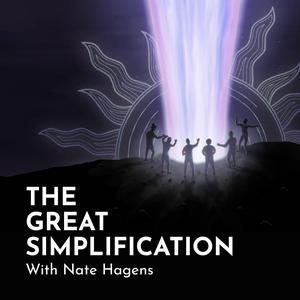The Neuroscience of Good Journalism: How Constructive Journalism Uses Information to Empower with Maren Urner
The psychological effects of media consumption and keeping up with the 24-hour news cycle are vast. It can sometimes feel impossible to stay educated on current events without also feeling hopeless, disempowered, or even enraged. Worse, the incentives and structures of modern media outlets seem more and more geared towards capturing our attention at any cost… including our mental health, trust in one another, and even open societies themselves. Given this, is there a way to get back to a form of media and journalism that helps us feel empowered, and if so, how do we do it? Today, Nate is joined by neuroscientist and best-selling author, Maren Urner, to discuss the critical role of journalism in democracy, the importance of rebuilding trust in media, and how neuroscience can inform our understanding of media consumption. Maren makes the case for constructive journalism – a more balanced and solutions-oriented approach to reporting – as a powerful antidote to the relentlessly negative tone of traditional media. She also highlights the urgent need for systemic change in the way journalism operates if we want to foster a more informed and empowered public. How do our deeply ingrained cognitive biases shape the way news is produced and consumed? Could journalism evolve to become a force for collective action and positive change, rather than just another profit-driven industry competing for our clicks? And in a world where our attention has become one of the most valuable – and contested – resources, how can we take greater ownership over the media we choose to engage with? (Conversation recorded on March 31st, 2025) About Maren Urner: Maren Urner is a neuroscientist and, since September 2024, Professor for Sustainable Transformation at Münster University of Applied Sciences and Head of the new Master's program in Sustainable Transformation Design. In 2016, she co-founded "Perspective Daily," the first ad-free online magazine for constructive journalism. She led the editorial team as editor-in-chief and served as managing director until March 2019. After her time at Perspective Daily, she taught as a professor of media psychology at the Media University of Applied Sciences in Cologne until August 2024. Maren has been a columnist for the Frankfurter Rundschau since September 2020. Her three books, End the Daily Doomsday, Out of the Eternal Crisis, and Radically Emotional: How Feelings Make Politics are SPIEGEL bestsellers. She is the winner of the 2023 BAUM Environmental and Sustainability Award in the science category. Show Notes and More Watch this video episode on YouTube Want to learn the broad overview of The Great Simplification in 30 minutes? Watch our Animated Movie. --- Support The Institute for the Study of Energy and Our Future Join our Substack newsletter Join our Discord channel and connect with other listeners

